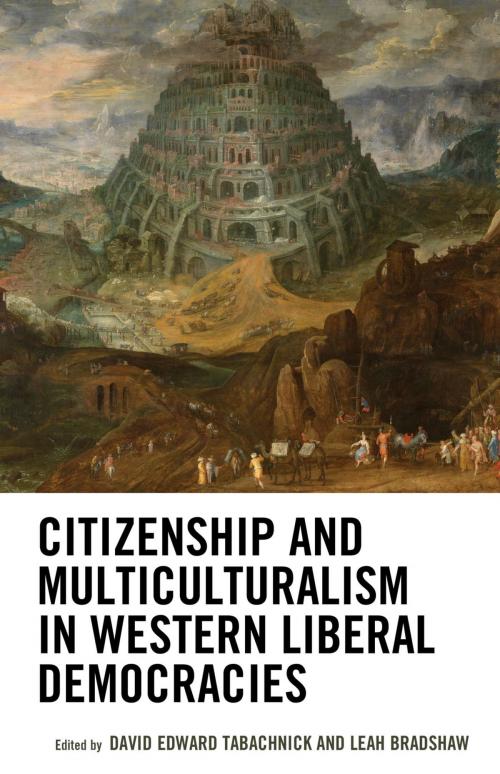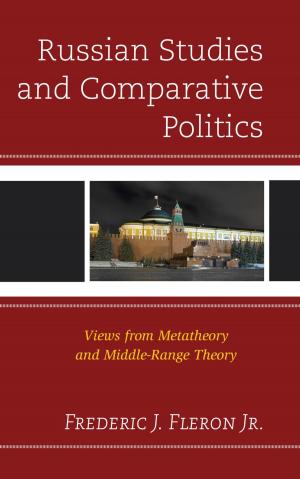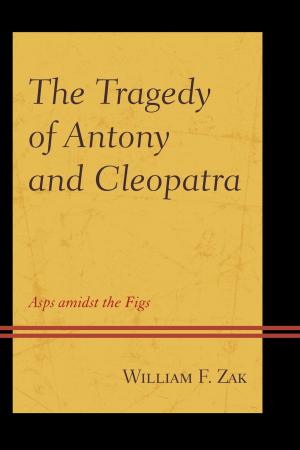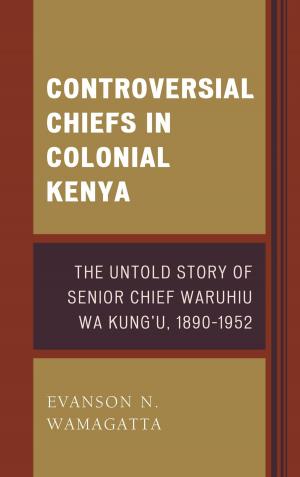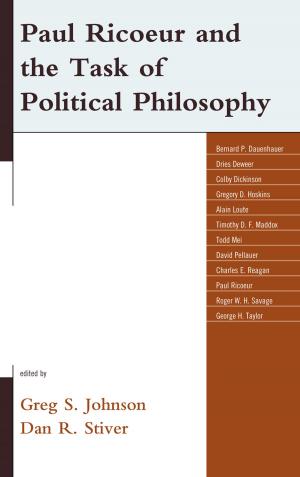Citizenship and Multiculturalism in Western Liberal Democracies
Nonfiction, Social & Cultural Studies, Political Science, Government, Civics, Religion & Spirituality, Philosophy, Political| Author: | Yasmeen Abu-Laban, Ed Andrew, Ronald Beiner, Leah Bradshaw, Sanjay Jeram, Kostas A. Lavdas, Tariq Modood, David Edward Tabachnick, Lee Trepanier, Triadafilos Triadafilopoulos | ISBN: | 9781498511735 |
| Publisher: | Lexington Books | Publication: | March 16, 2017 |
| Imprint: | Lexington Books | Language: | English |
| Author: | Yasmeen Abu-Laban, Ed Andrew, Ronald Beiner, Leah Bradshaw, Sanjay Jeram, Kostas A. Lavdas, Tariq Modood, David Edward Tabachnick, Lee Trepanier, Triadafilos Triadafilopoulos |
| ISBN: | 9781498511735 |
| Publisher: | Lexington Books |
| Publication: | March 16, 2017 |
| Imprint: | Lexington Books |
| Language: | English |
This volume explores some of the tensions and pressures of citizenship in Western liberal democracies. Citizenship has adopted many guises in the Western context, although historically citizenship is attached only to some variant of democracy. How democracy is configured is thus at the core of citizenship. Beginning in ancient Greece, citizenship is attached to the notion of a public sphere of deliberation, open only to a small number of males. Nonetheless, we take from these origins an understanding of citizenship that is attached to friendship, preservation of a distinct community, and adherence to law. These early conceptions of citizenship in the west have been dramatically altered in the modern context by the ascendancy of individual rights and equality, expanding the inclusiveness of definition of citizenship. The universality of rights claims has led to debate about the legitimacy of the nation state and questioning of borders. A further development in our understanding of citizenship, and one that has shifted citizenship studies considerably in the last few decades, is the backlash against the universalism of rights in the defense of cultural recognition within democratic polities. Multiculturalism as a broad spectrum of citizenship studies defends the autonomy and recognition of cultural, and sometimes religious, identity within an overarching scheme of rights and equality. This collection draws upon the many threads of citizenship in the Western tradition to consider how all of them are still extant, and contentious, in contemporary liberal democracy.
This volume explores some of the tensions and pressures of citizenship in Western liberal democracies. Citizenship has adopted many guises in the Western context, although historically citizenship is attached only to some variant of democracy. How democracy is configured is thus at the core of citizenship. Beginning in ancient Greece, citizenship is attached to the notion of a public sphere of deliberation, open only to a small number of males. Nonetheless, we take from these origins an understanding of citizenship that is attached to friendship, preservation of a distinct community, and adherence to law. These early conceptions of citizenship in the west have been dramatically altered in the modern context by the ascendancy of individual rights and equality, expanding the inclusiveness of definition of citizenship. The universality of rights claims has led to debate about the legitimacy of the nation state and questioning of borders. A further development in our understanding of citizenship, and one that has shifted citizenship studies considerably in the last few decades, is the backlash against the universalism of rights in the defense of cultural recognition within democratic polities. Multiculturalism as a broad spectrum of citizenship studies defends the autonomy and recognition of cultural, and sometimes religious, identity within an overarching scheme of rights and equality. This collection draws upon the many threads of citizenship in the Western tradition to consider how all of them are still extant, and contentious, in contemporary liberal democracy.
